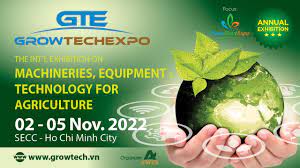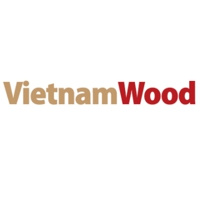- Read all
- Rice
- Fisheries
- Cassava
- Fertilizer & Pesticide
- Coffee
- Animal Feed
- Cocoa
- Seed
- Tea
- Wood
- Pepper
- Agricultural Cooperations
- Cashew
- Agricultural Investments
- Rubber
- Governmental Policies
- Sugarcane
- Agricultural Startup Ecosystem
- Corn
- Technological Innovations
- Spices
- Organic Agriculture
- Bean
- Food Manufacturing
- Fruit & Vegetable
- Agricultural Value Chain
- Flower
- Water & Waste Management
- Meat
- Processed Food
- Dairy
- Plant Originated Products
- General Agro Commodities
- Animal Originated Products
ORGANIC HOPEFARM COOPERATIVE IS GRANTED THE CERTIFICATE OF ORGANIC AGRICULTURAL PRODUCTS
December 16, 2021

Organic Hopefarm Cooperative in Hoa Binh has obtained the certification of organic agricultural products for 22 hectares of citrus trees. Photo: Tung Dinh.
At the end of November 2021, Organic Hopefarm Cooperative has completed the steps to achieve organic agricultural products certification with the citrus fruit trees model. On December 8, Vinancontrol Co., Ltd., TP. Ho Chi Minh City (‘Vinacontrol Ho Chi Minh’) has awarded this certificate to the cooperative.
The certificate of organic agricultural products is valid for two years and is re-evaluated after one year, and there are irregular inspections and assessments if necessary to ensure that the establishment still maintains and ensures standards.
Good soil for quality plants
From a passion for agriculture and organic products, in 2015, Hopefarm Organic Cooperative switched to organic farming on 22 hectares of citrus trees in My Hoa commune, Tan Lac district, Hoa Binh province.
Mr. Ta Duy Thanh, a cooperative member, said that at first, the cooperative faced many difficulties due to a lack of experience. "In the first few days, the trees are weaker, and the pests are more numerous than before. Then there was a time when the tree was sick for two consecutive seasons, the fruit fell off, we looked very sad, "said Mr. Thanh.

Due to the balance of nutrients, the ecosystem in the garden of Organic Hopefarm Cooperative is very diverse; flowers and grass intermingle with fruit trees. Photo: Tung Dinh.
However, thanks to the support of experts from the Vietnam Agricultural Academy, Vietnam National University, Hanoi, especially the Center for Organic Agriculture of the Vietnam National Academy of Agriculture, Organic Hopefarm Cooperative has found a direction to suitable cultivate for organic grapefruit, tangerine, and orange products.
After two years of conversion, using organic fertilizers and microbial products to equal nutrition, the garden becomes healthy, pests and diseases are significantly reduced.
Specifically, Mr. Ta Duy Thanh said that to improve the health of the soil and trees, the most important thing is to restore the ecosystem and increase the density of necessary microorganisms in the soil.
"When microorganisms are present in the natural environment, they will produce organic nutrients to grow stronger plants," Mr. Thanh said.
To increase the necessary microbial diversity, the cooperative uses organic fertilizers and composts of decaying livestock and poultry to fertilize. In addition, grass also becomes an indispensable source of organic fertilizer for the garden.
"We mow the lawn every two months but only cut across the stem, leaving the roots. The grass is fed with manure to get biomass; the decaying grass stalks will become fertilizer in place and retain moisture while the roots help create humus for the soil", said Mr. Bui Van Thi, director of the cooperative.
Regarding plant protection, the cooperative members know how to add natural enemies to the garden, cause harmful organisms to be destroyed, or control at a reasonable density in the garden. Specifically, the frequency of adding natural enemies in the first two years is two times per year and the following years is four times per year.

At the moment, tangerines of Organic Hopefarm Cooperative are selling for VND 60,000 per kilogram at the garden. Photo: Tung Dinh.
Currently, the biggest problem with the Organic Hopefarm Cooperative is the yellow flies. It is a very difficult insect to deal with. However, after many trials, up to now, the cooperative has a plan to deal with this harmful organism.
Mr. Ta Duy Thanh shared: "We have done a lot of research, once sprayed American kaolin on the fruit to create a slippery texture that prevents yellow flies from landing or using baits and biological traps, but it is not suitable, no ensure the safety of organic production."
Instead, the cooperative has found a way to use natural wood vinegar, creating a smoke smell to repel yellow flies. The only problem is that the potency of the wood vinegar is short, so it must be added twice a week during the pre-harvest stage.
Desire to spread the organic farming model
Although it has achieved the certification of organic agricultural products, the cooperative will continue to improve the quality as well as improve the productivity of the products.
Mr. Dinh Van Vuong, member of Organic Hopefarm Cooperative said: "What Organic Hopefarm wants is to continue to develop sustainably and further expand its organic farming model." The cooperative also wants to spread the effectiveness of organic farming to other farms in the province.

Consumers are increasingly accepting organic Hopefarm's organic oranges. Photo: Tung Dinh.
The cooperative's oranges, tangerines and pomelos have gained a foothold in organic food stores in Hanoi City with high selling prices. Currently, oranges in Hoa Binh are sold at prices ranging from VND 15,000-20,000 per kilogram, while tangerines of Organic Hopefarm Cooperative are selling for VND 60,000 per kilogram at the garden.
Favorable foundation for organic farming
According to Mr. Le Van Hau, Head of Service Development Department of Vinacontrol Ho Chi Minh, Organic Hopefarm Cooperative had a good start when cooperating with the Center for Organic Agriculture (Vietnam Academy of Agriculture) right from the very beginning of its operation. motion.
“Up to 98% of the test results, soil, water and product analysis results of Organic HopeFarm have no trace of extraneous substances, the rest appear very low and far from the allowable threshold.” Vinacontrol's representative emphasized.
The farming site of Organic HopeFarm Cooperative is also considered to be very convenient when it has a natural buffer zone, surrounded by mountains. The weather and environment are also favorable for organic farming.
“The evaluation standards of Vietnam or international are based on 4 main principles: Fairness; Careful; Ecological; and Objective. With those principles, Vietnam's standards are now completely equivalent to international organic production standards," added Mr. Hau.
Translated by Ha Phuc
Related news
-
Growing organic oranges is difficult to do but the price is twice as high
Tuyen Quang In this year's orange crop, organic orange growers in Ham Yen district (Tuyen Quang) earned hundreds of millions of dong in profit because oranges were well priced and accepted by the demanding market.November 24, 2022 -
Heighten Vietnam - USA cooperation relationship through agriculture
(VAN) Through 8 proposals to the new US Agricultural Counselor, Deputy Minister Nguyen Hoang Hiep hoped that trade between the two countries would soon regain its growth momentum.November 23, 2022 -
World wheat prices soar, India seizes export opportunities
India completed deals to export half a million tonnes of wheat in recent days and is expected to sign more contracts to take advantage of record-high global prices.November 22, 2022
Events See more

Vietnamplas 2022 - Vietnam International Plastic and Rubber Industry Exhibition
23-03-2023 - 26-11-2022 09:00 - 17:00
Saigon Exhibition and Convention Center (SECC) – 799 Nguyen Van Linh Boulevard, District 7, City. Ho Chi Minh.

GROWTECH EXPO - FLORAPLANTEXPO 2021
02 - 05-11-2022 09:00 - 17:00
Saigon Exhibition and Convention Center (SECC) – 799 Nguyen Van Linh Boulevard, District 7, City. Ho Chi Minh.

VTG 2022
18 - 25-10-2022 09:00 - 17:00
Saigon Exhibition and Convention Center (SECC) – 799 Nguyen Van Linh Boulevard, District 7, City. Ho Chi Minh.

VIETSTOCK 2022 - SPECIALISED EXHIBITION OF LIVESTOCK, FEED AND MEAT PROCESSING IN VIETNAM
12 - 14-10-2022 08:00 - 17:00
799 Nguyen Van Linh, Tan Phu Ward, Dist. 7, Hochiminh City, Vietnam

VTG 2022
21 - 27-09-2022 09:00 - 17:00
Saigon Exhibition and Convention Center (SECC) – 799 Nguyen Van Linh Boulevard, District 7, City. Ho Chi Minh.
.png)
VIETFISH 2022
22 - 26-08-2022 09:00 - 17:00
Saigon Exhibition and Convention Center (SECC) – 799 Nguyen Van Linh Boulevard, District 7, City. Ho Chi Minh.
Business Opportunities See more
-
BURANI INTERFOOD is looking for Buyers in Vietnam
Type:
November 22, 2021
-
BURANI INTERFOOD is looking for Buyers in Vietnam
Type: Wholesaling Meat
November 22, 2021
-
BURANI INTERFOOD is looking for Buyers in Vietnam
Type: Wholesaling Meat
November 22, 2021
-
BURANI INTERFOOD is looking for Buyers in Vietnam
Type: Wholesaling Meat
November 19, 2021
-
BURANI INTERFOOD is looking for Buyers in Vietnam
Type:
November 19, 2021
-
Indian purchaser looking for high quality cashew nut kernel from Vietnam
Type: Exporting Cashew
Mar 14, 2016
534
Limitless database of qualified and verified agricultural partners
124
Exclusive buy & sell leads on specific agricultural commodities
24
Agricultural events in Vietnam and Asia Pacific region
Stay informed!
Enter your email address below to receive updates each time we publishes new content
